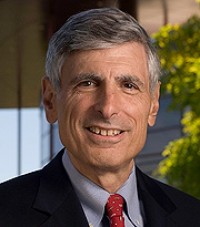The high cost of pain: Medical school dean testifies on problem to U.S. Senate
The high cost of pain: Medical school dean testifies on problem to U.S. Senate
In his ongoing effort to push for a public health campaign to battle our country’s pain epidemic, Philip Pizzo, MD, dean of the School of Medicine, traveled to Washington D.C. to speak before the U.S. Senate Committee on Health, Education, Labor & Pensions today.

Philip Pizzo, MD, dean of the School of Medicine
During the hearing, Pizzo highlighted the results of last June’s Institute of Medicine Committee report on pain, which concluded that the effective treatment of pain demands a “cultural transformation” on the part of patients, physicians and researchers. Pizzo chaired the committee that issued the report.
The total costs of treating pain are higher than the costs of cancer, cardiovascular diseases and diabetes put together, while the treatments still leave many patients suffering needlessly. In order to battle this epidemic, the government needs to support a public health campaign that includes improving education of providers, patients and communities, Pizzo and his co-authors concluded.
“The magnitude is simply astounding,” Pizzo told the committee. While the report focused on the public health implications of this epidemic and recommendations for change, the authors also understood that “it’s the individual human impact of pain that underscores why this is such an important issue…”
The effect on the individual was brought into stark focus by speaker Christen Veasley, an advocate for pain research who had a near-fatal accident 15 years ago and has suffered from residual back and neck pain ever since.
“For many of us, we wake up and the first thing we feel is pain,” she said. “It feels like you live with a veil over your face. As patients, we’ve been left completely disillusioned… This report has brought us renewed hope.”
Also testifying were John Sarno, MD, professor at New York University School of Medicine and William Maixner, PhD, director of the Center for Neurosensory Disorders at the University of North Carolina at Chapel Hill.
By Tracie White
Stanford University Medical Center
###
* Stanford University Medical Center integrates research, medical education and patient care at its three institutions – Stanford University School of Medicine, Stanford Hospital & Clinics and Lucile Packard Children’s Hospital.
** The above story is adapted from materials provided by Stanford University School of Medicine
________________________________________________________________




















